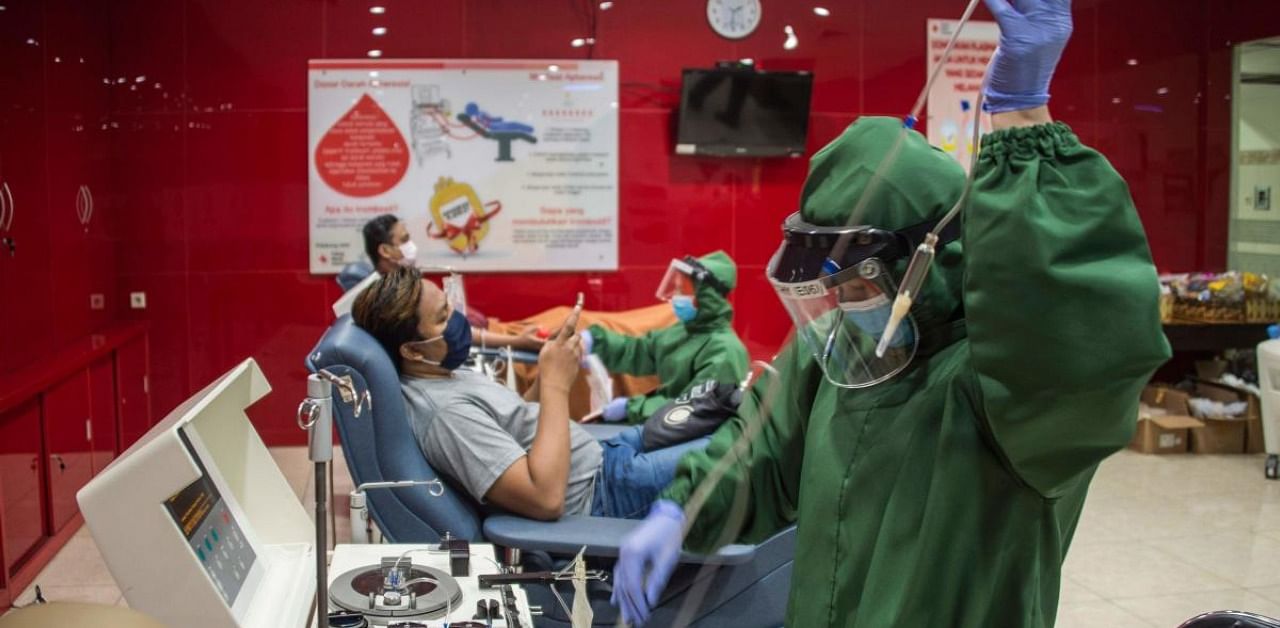
The Covid-19 pandemic could cause a short-term decline in life expectancy in the severely affected areas of the world, unless the spread of the disease is contained, according to a study.
The research, published in the journal PLOS ONE, examined the impact of Covid-19-related deaths on life expectancy for four broad world regions across multiple rates of infection and age groups.
Guillaume Marois Associate professor, Asian Demographic Research Institute, Shanghai University, China told PTI that the impact of Covid-19 on life expectancy is probably already felt at the sub-national level, in regions that have been severely affected.
"For instance, there a noticeable loss in life expectancy, in New York, Madrid, Bergamo, and probably some regions of Brazil," Marois, who led the study, said.
Period life expectancy is a measure of the number of years that an average person may expect to live. Prevalence is the proportion of a particular population found to be affected by a disease at a specific time.
The researchers noted that improved healthcare, socioeconomic conditions, and education are among the key factors influencing our health and how long we live.
Life expectancy has been used as a measure of human development across regions and countries.
The researchers built a model that simulates the probability of getting infected by Covid-19, the probability of dying from it, and the probability of dying from another cause for a period of one year, taking into account the different fatality rates from the disease for different age groups.
They then calculated the impact of Covid-19 on life expectancy by reconstructing life tables and life expectancies from the simulation and comparing them with those used for the inputs.
The study found that at very low prevalence rates, the Covid-19 pandemic would not affect life expectancy.
However, at prevalence rates of only 2 per cent, the disease could cause a drop in life expectancy in countries where average life expectancy is high -- roughly around 80 years.
"At 10 per cent prevalence, the loss in life expectancy is likely to be above one year in high life-expectancy countries such as those in Europe and North America," Marois said.
"At 50 per cent, it would translate into three to nine years of life lost in high life-expectancy regions. In less developed regions, the impact is smaller given that there is already lower survival at older ages," he added.
However, Marois noted that even in the most affected regions, the life expectancy will likely recover once the pandemic is over.
This type of analysis is useful to decision makers as it shows in broad strokes the potential cost of human lives lost due to the disease., according to the researchers.
"These 'what-if' scenarios can give policy-relevant information on what could potentially happen to life expectancy under different levels of prevalence, which vary with public health strategies to reduce and prevent the spread of Covid-19," said study co-author Raya Muttarak, from International Institute for Applied Systems Analysis in Austria.
"We show that if the virus spread widely in the population, for instance, in the absence of any lockdowns and social distance measures, this could result in a notable drop in period life expectancy," Muttarak said.
The new study provides an important first estimate of the impact of Covid-19 on life expectancy, but new developments in healthcare or broader impacts of the pandemic on healthcare access or economic systems could also affect mortality rates and life expectancies.
"It's simply an assessment of what would happen if the virus reaches a very high prevalence and using the upper estimates of fatality rates.
"This scenario is unlikely to happen for country as a whole, but some severely affected areas could maybe see such drop in their life expectancy,” Marois noted.
The researchers point out that the potential overload of health care systems at higher rates of prevalence would inevitably lead to higher mortality.
However, as healthcare providers gain more experience and knowledge in treating the disease, mortality rates may decrease.